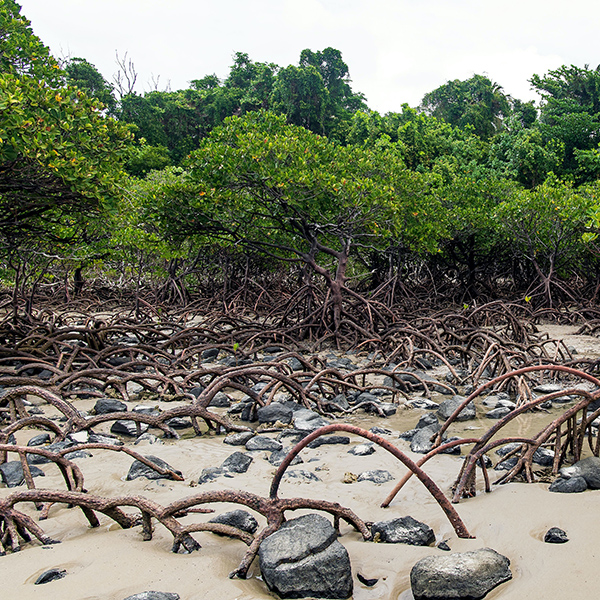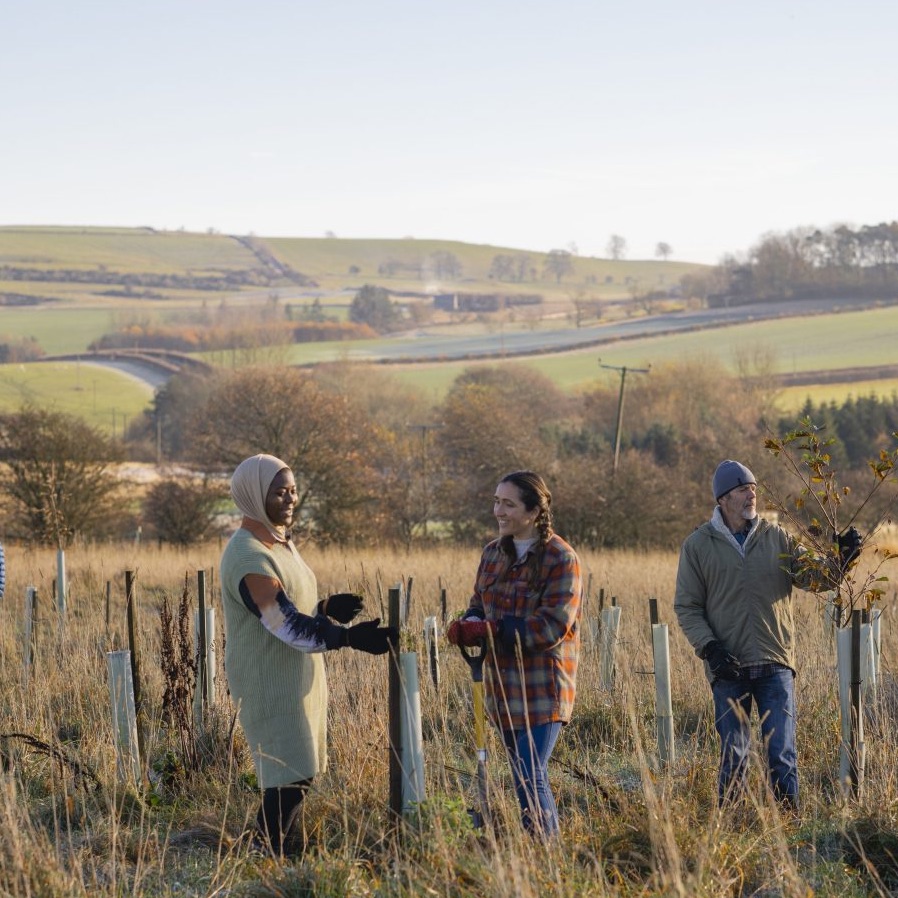-
Day 1: Holistic Benefits of Nature-based Solutions
-
Scaling Nature-based Solutions with Integrity
Opening the conference, we will assess the current state of nature-based solutions in policy and practice. Taking in a range of voices, spanning indigenous, scientific, economic, governmental and corporate, we will identify the main challenges and lay the groundwork for the conference. We'll also explore a considered strategy for effective and ethical advancing of nature-based solutions, including how to elevate their role in the Rio Conventions and have economy-wide targets in climate pledges at the UNFCCC COP30 in Belém.
-
Nature-based Solutions for Health and Wellbeing
We will explore the interconnectedness of human wellbeing and the flourishing of our ecosystems. We will discuss evidence on how nature-based solutions in urban and natural settings, and green prescribing, can promote physical and mental health and foster a deeper connection between people and nature, as well as the conservation outcomes of improving healthcare. Health benefits of protecting and restoring nature, though increasingly well-evidenced, rarely inform policy and practice, so the panellists will provide insights and examples of how to address this.
-
Nature-based Solutions for Adaptation and Humanitarian Crises
This session will explore some of the latest evidence for the value and limits of NbS and hybrid approaches to climate change adaptation, including reducing disaster risks along coasts and in cities, as well as for critical aspects of food security. The potential of nature-based solutions for reducing the social and environmental harm caused by humanitarian crises will also be outlined, and the panel will discuss how to elevate the position of nature-based solutions in climate adaptation and development policy and practice, nationally and internationally.
-
Day 2: Making the System Work for Nature
-
Addressing Uncertainty and Building the Evidence
We will examine how we might best address uncertainties in the evidence-base on the effectiveness of nature-based solutions to societal challenges and the extent to which they bring benefits for communities and enhance biodiversity locally. We will critically evaluate new and emerging frameworks for monitoring and evaluation of socio-ecological sustainability and explore trans-disciplinary approaches to selecting suitable metrics that embed local rights and knowledge.
-
Balancing Resilience Concerns around Nature-based Solutions
After discussing the interdependence of social and ecological resilience, we will explore approaches to enhancing this resilience in the face of climate change impacts and socio-political factors, including with adaptive management based on science and traditional knowledge. We will examine the significance of “short-term” benefits of nature-based solutions for cooling and adaptation, including in comparison to tech, with a view to developing a balanced approach to investment in climate solutions, recognising that, ultimately, thriving nature underpins a thriving economy.
-
Governance, Markets and Financing for Nature
Recognising the interdependency of governance, markets and finance and with reference to real-world examples, we will discuss some of the creative ways of resourcing and implementing high integrity nature-based solutions, including building a bioeconomy, the role of markets, as well as grassroots public-civil society action and the potential for non-market approaches that share benefits and preserve wealth locally.
-
Day 3:Reimagining the Future with Nature-based Solutions
-
Remembering Our Profound Interconnectedness With Nature
The basis of reimagining the future starts with rekindling our relationship with the Earth, remembering we are just a strand in the great web of life rather than its master or architect. This requires a profound shift from an anthropocentric worldview to an ecocentric one. In this session, we will hear from a range of Indigenous voices about approaches to rekindling our connection with nature as a foundational driver of positive change. We will learn how we might be able to support a deeper recognition around the world that humans are an interwoven part of a beautiful web of life, breaking down the erroneous sense that, in talking about "nature", we are talking about something outside ourselves.
-
The Role of Nature in Redefining our Economic Model
There is an urgent need to transform our concepts and models of 'economic progress' so that human economies can start to repair, rather than degrade, the web of life. In this discussion, we will take nature as our mentor to inspire and inform new economic thinking, helping us to reimagine and redesign economies to be in service of life. Recognising that the global economy is embedded within the ecology of the Earth, and must therefore be aligned with Earth’s cycles and dynamics, we can learn from the mutualisms that sustain ecosystems across the planet and learn from indigenous knowledge systems and discuss how we might design economies founded on collaboration not competition.
-
Restoring Relationship with Nature-based Solutions
How do we come back into relationship with each other and the Earth? How do we hold decision makers to account for the ongoing destruction of our current system? How do we advance projects on the ground with local communities? How do we inspire people through art and music to aspire to a different future that goes beyond GDP? Our final session will hear from a range of experts on topics as diverse as Ecocide through to the role of art in inspiring change? We will hear from real world cases in Scotland, the Andes and New Zealand with groups working to design a wellbeing nature-based economy that is in service of the web of life. We will work to try and pull some of the strands together from across the three days with a view on both the challenges and opportunities ahead.








